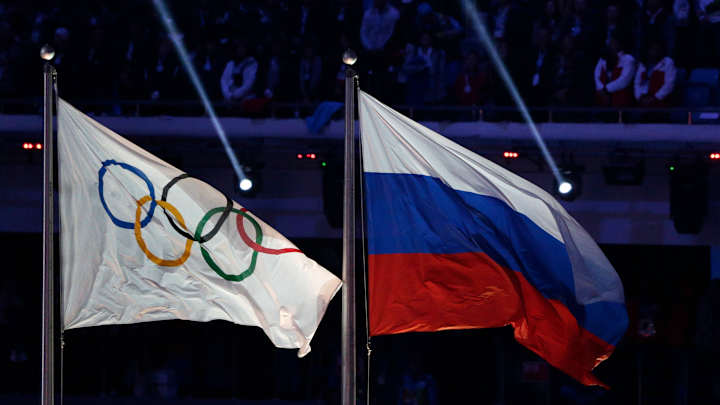Bach cites 'right to individual justice' in Russian doping

LONDON (AP) International Olympic officials will try to find ''the right balance between collective responsibility and individual justice'' in dealing with Russian doping allegations ahead of the games in Rio de Janeiro, IOC President Thomas Bach said Wednesday.
Bach spoke in an interview five days before the release of a report by Canadian law professor Richard McLaren into allegations of a state-sponsored Russian doping conspiracy at the 2014 Winter Games in Sochi.
Some officials, including the CEO of the U.S. Anti-Doping Agency, have said Russian athletes in all sports should be barred from competing for their country at the Rio Games if McLaren's report produces evidence that Russia's sports ministry was involved in subverting the Olympic drug-testing system.
Bach said he could not speculate on what the report might say or what the consequences might be, but stressed that the International Olympic Committee would take the rights of individual athletes into account.
''It is obvious that you cannot sanction or punish a badminton player for infringement of rules or manipulation by an official or lab director in the Winter Games,'' he said in a phone interview with The Associated Press and two other international news agencies.
''What we have to do is to take decisions based on facts, and to find the right balance between collective responsibility and individual justice,'' Bach added. ''The right to individual justice applies to every athlete in the world.''
Bach said if the report highlights doping in summer sports, it would be up to international federations to decide on the eligibility of Russian athletes or coaches on an ''individual basis.''
''Everybody not implicated cannot be made responsible for the misbehavior of others,'' he said.
McLaren was commissioned by the World Anti-Doping Agency to investigate allegations made by Grigory Rodchenkov, the former director of Moscow's drug-testing lab. He told the New York Times that he doped dozens of athletes, including at least 15 medalists, before the 2014 Olympics and helped switch clean samples for tainted ones through a concealed hole in the wall of the Sochi lab during the games.
Rodchenkov, who is now living in the United States, said he operated on instructions from Russia's sports ministry, which denies the claim.
''We have to see the allegations,'' Bach said. ''We have to see how far it goes, what the evidence is and then we have to evaluate the report. If, at the end of this procedure, there should be proven infringements of the anti-doping rules or manipulation of tests, then together with the winter sports federations we will take the necessary measures.''
Bach said measures could be taken against athletes, officials or others.
''This can include further institutional measures, in particular on the level of the international federations,'' he said, suggesting the possibility of Russian winter sports bodies being suspended.
McLaren's report, however, is also expected to look into doping in other sports in Russia.
Last month, McLaren said his preliminary findings supported allegations that the Russian sports ministry was involved in manipulating test results before, during and after the track world championships in Moscow in 2013.
Bach noted that a recent Olympic summit agreed that the presumption of innocence has been reversed in the case of Russian athletes, meaning they have to prove they are clean.
''For us it is very clear, everybody implicated in a doping case has to be sanctioned and will be sanctioned,'' he said.
Russia's track and field athletes remain banned by the IAAF based on a WADA investigation last year that detailed alleged state-sponsored doping.
Russia has appealed, and a ruling by the Court of Arbitration for Sport is expected next Thursday. Asked whether the IOC would accept the ruling if it upholds the exclusion of the Russians, Bach said, ''Yes.''
The IAAF also passed a rule allowing for Russian athletes who have been outside the country and subject to reliable testing to apply to compete as neutral athletes. Only one athlete, U.S.-based long jumper Daria Klishina, was accepted among 68 applicants.
While the IAAF says she should compete under a neutral flag, Bach reiterated the IOC position that, if deemed eligible, Klishina would ''be a full member'' of the Russian Olympic Committee team and come under the national flag.
In a separate case, Russian 800-meter runner Yulia Stepanova, a former doper who helped blow the whistle on systematic cheating in her country, has been cleared to compete as a neutral athlete under an IAAF ''exceptional eligibility'' rule. The IOC is currently studying her case and whether it merits ''an exemption'' from the Olympic Charter.
